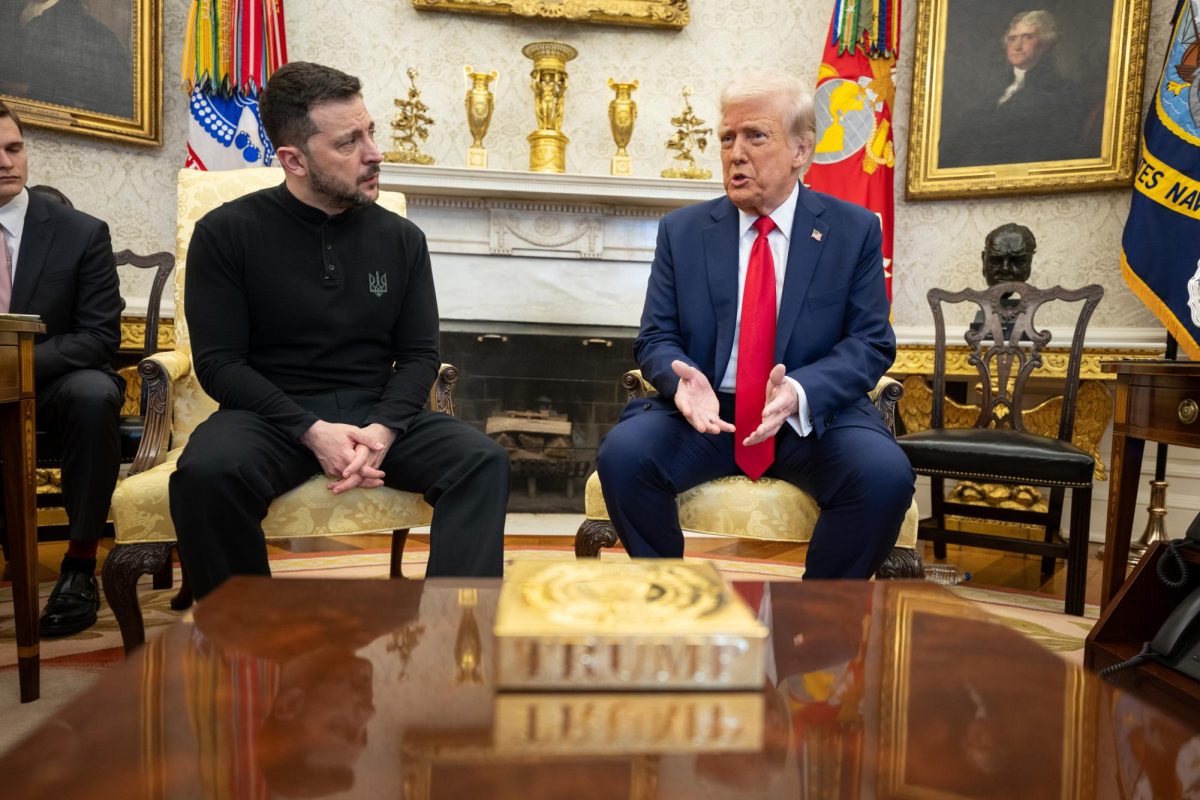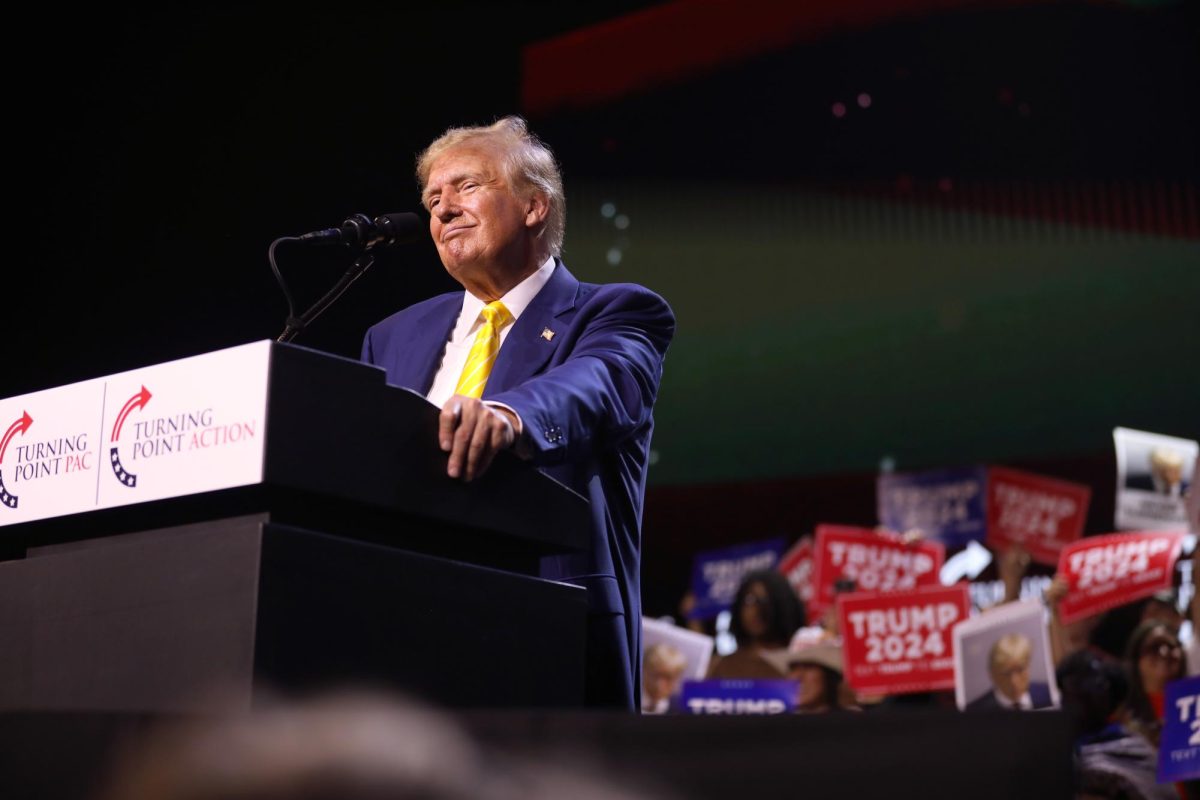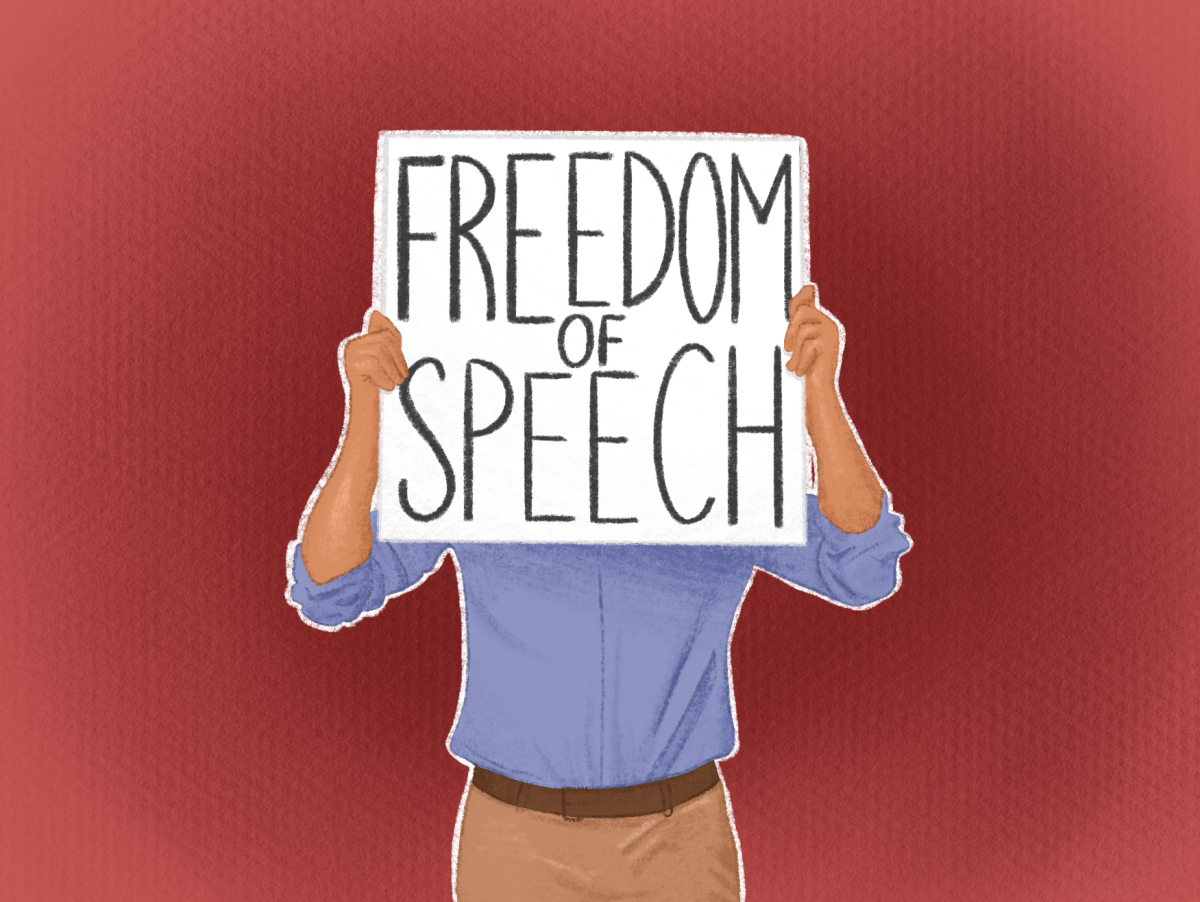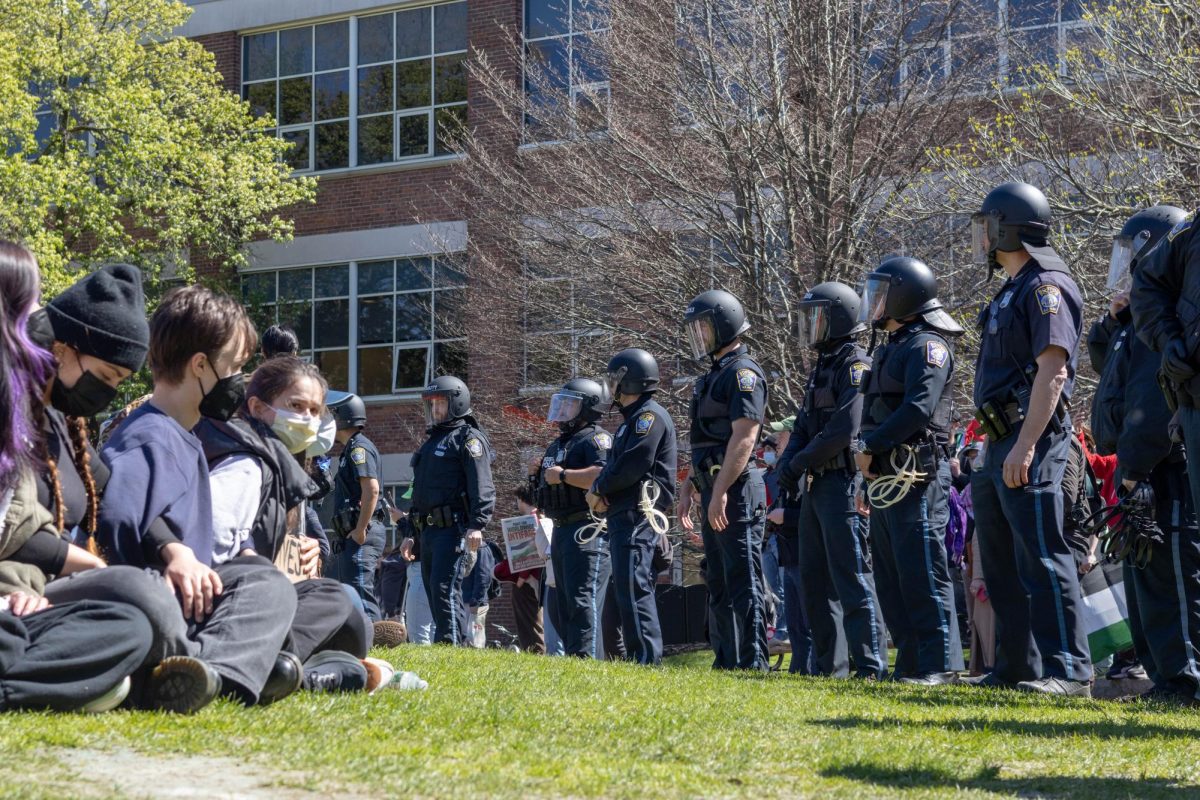As International Women’s History month comes to a close, the realm of U.S. foreign policy still feels increasingly like a man’s world. I’m not just referring to the typical lack of female leaders in the U.S. State Department. Beyond those numbers, this administration’s foreign policy has been characterized by a bizarre quest to be the most “masculine” figure on the world stage: strong, dominant and watching out for himself, even if it’s at the expense of all others.
This urge didn’t appear out of thin air: Coined “toxic masculinity,” modern male culture is deeply rooted in the idea that manhood equates to a refusal to show weakness and to assert strength no matter the situation. But what happens when it takes hold of some of the world’s most powerful leaders?
While it’s sad enough to watch this odd cultural ideal cost individuals their personal sense of joy, it’s far worse when it seeps into politics — and the president of the United States bulldozes his way over entire populations on a personal quest for masculine bravado.
The Feb. 28 shouting match between President Donald Trump and Ukrainian President Volodymyr Zelenskyy was a prime example. What started as a mineral deal negotiation between the two leaders quickly escalated into an “Oval Office meltdown” when Trump and Vice President JD Vance began to berate Zelenskyy for not showing enough gratitude to the United States.
The scene that unfolded was nothing short of embarrassing; Trump raised his voice, not letting Zelenskyy get a word in as he tried to explain himself in his second language. It was a two-against-one wielding of power that can only be compared to a more consequential degree of schoolyard bullying, a flaunting of the United States’ upper hand against Ukraine as it faces a mounting death toll due to its invasion by a dictator.
Acknowledging that “this is going to be great television,” Trump seemed more than excited for his hot-headed behavior to be broadcast to the rest of the world — it proved his manliness, after all. At one point in the exchange, Trump told Zelenskyy, “The problem is, I’ve empowered you to be a tough guy, and I don’t think you’d be a tough guy without the United States.”
With this taunt, Trump got at the root of what drives his foreign policy decisions. While foreign policy involves many different factors for him and his administration, it’s also about being a tough guy.
To U.S. leaders, the “tough guy” ideal shows they are strong, aggressive and powerful, regardless of what this means for the future of Americans. It means abandoning strategic foreign policy decisions in favor of antagonizing other countries, asserting dominance over allies for no necessary reason and cutting programs that aid vulnerable populations around the world.
Being hot-headed or vindictive? Impulsive and irrational? Totally acceptable, welcomed, even. Regardless of the detriment that this behavior causes the United States, it fits under the misguided cultural umbrella of being “masculine.” And that accomplishment, apparently, is worthy of all the destruction it can cause.
Look at the sweeping cuts of the U.S. Agency for International Development, or USAID, the organization that provides vital humanitarian aid to countries facing crisis and only makes up 0.6% of U.S. federal spending. Elon Musk, Trump-appointed head of the new Department of Government Efficiency, bragged about feeding USAID into the “wood chipper” — a needlessly aggressive metaphor to describe a decision that is costing the lives of millions of people. It is quite literally, “The World’s Richest Men Take on the World’s Poorest Children” — just like a bully, the strong preying on the weak.
Musk made the connection clear with his Feb. 20 onstage chainsaw-wielding, coupled with boasts about how he gutted USAID instead of attending “a lot of great parties.” With each cut and the subsequent effect it has on someone’s life, Musk grows one step closer to his dream of becoming the powerful, untouchable — and apparently now, party-going — male ideal.
This dream of glory is made most evident in an AI video that imagines Musk and Trump partying in a developed, resort-like future Gaza. The video proves how — contrary to everything he’s campaigned on — Trump’s foreign policy has nothing to do with keeping the U.S. out of global conflict: It’s about golden statues, female admiration and money, all the spoils of being society’s ideal of a “man”.
Not only do these selfish foreign policy decisions mark a cruel display of power; they also severely harm the U.S.
That’s the thing: These decisions lack any real rationality or foresight. Look at how, just a few weeks ago, Trump justified starting a trade war with Canada, a long-established “friend of the U.S.,” by falsely citing overblown rates of fentanyl coming across the border.
All of these policy moves trickle down to us. It is Americans who will be regarded with shame abroad due to our country’s choices. It is U.S. consumers who will face higher prices as a result of unnecessary trade wars. In the case of USAID, we are also among those affected by a heightened spread of disease and instability throughout the world.
There is one group, however, that is spared from Trump’s foreign policy venom: The other world leaders he views as like-minded, strong men — a display of group mindset that is a key component of toxic masculinity. Even after President Vladimir Putin’s horrific invasion of Ukraine, Trump dares to speak highly of the leader, saying “He’s a tough cookie, got a lot of the great charm and a lot of pride.” If this isn’t a statement of admiration, I don’t know what is.
When did the idea of being a strong man mean preying on the world’s weak, rather than stepping up to protect them? Why does our culture hold space for anger — an arguably far more irrational emotion — in foreign policy, rather than empathy for those who are suffering?
Yes, there are numerous other factors involved in foreign policy, and to boil it all down to toxic masculinity would be a severe oversimplification of the complex issues at play. But with so many lives at stake, the very presence of this masculinity dynamic in Trump’s foreign relations must be called out for what it is: outrageous and unacceptable.
Our culture continues to equate masculinity and toughness with a lack of care for other people. As long as masculinity continues to be portrayed this way, it will always remain a dangerous thing to strive for.
And when the men who are raised on this ideal grow up to become world leaders, everyone pays the price.
Samantha Denecour is a fourth-year English and political science combined major and columnist for The News. She can be reached at denecour.s@northeastern.edu.

















